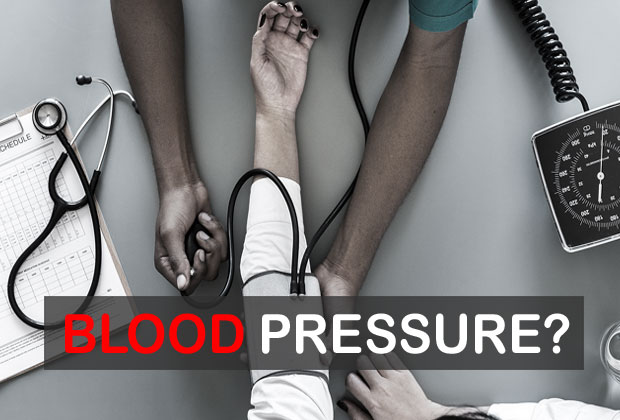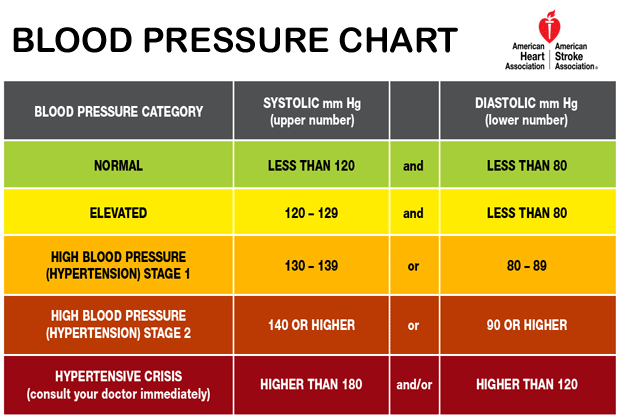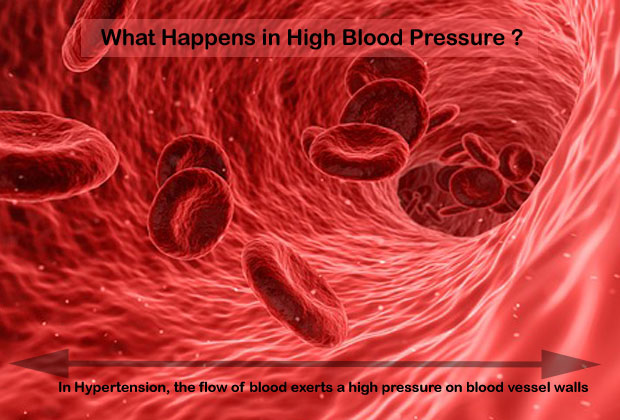Blood pressure is the force of blood on the walls of the blood vessels that carry oxygenated blood away from the heart to the tissues. It is an indicator of the conditions about your heart and blood circulation in the body.

Understanding Blood Pressure Types
The blood pressure has two types- systolic blood pressure and diastolic pressure.Systolic blood pressure is the amount of pressure inside your arteries when your heart is pumping oxygenated blood to the body.
Similarly, diastolic pressure is the pressure inside your arteries when your heart is resting between beats. In the diastolic state, heart refills with blood returned from the circulatory system.
Why Blood Pressure Abnormalities Occur?
The blood pressure abnormalities is a clear sign that not all is okay. A fluctuation (high, low or inconsistent) in the blood pressure reflects an underlying problem waiting for an investigation. Blood pressure disturbances cause hypertension (high blood pressure) and hypotension (low blood pressure).
Another aspect of the blood pressure disorder is occasional fluctuations. This can happen as a result of sleeplessness, work pressure, new strenuous exercise regime or some kind of stress.
However, if your blood pressure fluctuates quite often, it is better to consult a doctor and get it diagnosed properly.
What is the correct Blood Pressure Chart

The doctors across the world follow an ideal benchmark of 120/80 as an indicator of normal blood pressure.
Similarly, there is a caveat! If you are already a patient of hypertension your modified normal blood pressure level is anything below 140/90.
A patient of high blood pressure (on medication) within 30-59 years age group and maintaining 140/90 level need not worry to get the ideal 120/80 figure. Moreover, hypertensive patients above 60 years can have blood pressure up to 150/90.
According to the blood pressure chart of bloodpressureuk.org, the blood pressure readings for a healthy individual can be anything above 90 and below 120 for systolic pressure divided by above 60 and below 80.
The chart also gives a clue that if a healthy person is consistently getting a reading between 120-140/80-90, it indicates a pre-high blood pressure symptom. When you start getting a reading between 140-190/90-100, you can be sure about high blood pressure. A systolic reading of 90 or less divided by 60 or less is a low blood pressure symptom.
What is High Blood Pressure

Any blood pressure level above the limit set for a healthy person is a high blood pressure or hypertension condition.
Acute stress is the top most common factor that causes hypertension. Additionally, these conditions are also responsible for high blood pressure
- Old age
- Family history
- Obesity
- High salt in the diet
- Inactive lifestyle
- Excessive alcohol intake
- Diabetes or in high cholesterol
Does Humidity affects High Blood Pressure
There is also a link between temperature and high blood pressure.
This is because a temperature with high humidity reduces perspiration and evaporation. In this condition, the heart has to work twice as harder to maintain body temperature.
Hypertension links with Vitamin-D and Cognitive Impairment
New studies suspect a link between Vitamin D deficiency and the risk of developing high blood pressure (hypertension). However, scientists are not sure if vitamin D supplements can play important role in the regulation of high blood pressure.
A study by the researchers in Utah discovered that blood pressure patients with a systolic pressure level of 120 cut the risk of developing dementia and Alzheimer’s disease by almost 19%.
Role of Sugar in increasing Blood Pressure
Studies say too much of sugar can aggravate blood pressure condition.
It is now a no secret that carbonated sugar drinks cause obesity and high blood pressure is a repercussion of fat deposited in the body fluid circulatory system. Experts recommend a maximum daily intake for 9 teaspoons of sugar for men and 6 teaspoons for women.
Heavy meal increases Blood Pressure too!
After a heavy meal, your digestive tract to digest that meal quickly. Along with this, a typical stress hormone is also produced as a response to the meal. Both of these factors increase working in your heart to pump out fresh blood causing a spike in blood pressure.
Blood Pressure and Sleeplessness
If you are not getting a sound sleep it can affect your body’s ability to control stress hormones, leading to high blood pressure.
Consequences of untreated hypertension
Untreated High Blood Pressure can create many other disease symptoms. Like
- a blurred vision or the complete loss of sight.
- Constriction and damage to the arteries
- Coronary artery disease or heart failure
- Cognitive impairment, dementia or a brain stroke
- Damage and failure of kidneys
- Vision Loss.
- Erectile Dysfunction
- Weakening of bones due to calcium loss
- Sleeping trouble due to snoring
Common Symptoms of High Blood Pressure
Hypertension is often called the “silent killer” because symptoms often do not appear until a vital organ is threatened, which can take years.
The symptoms of high blood pressure do not show up until a severe organ damage situation arises.An untreated high blood pressure can display some common symptoms like –
- A headache
- Fatigue
- Nausea
- Vomiting
- Shortness of breath
- Restlessness
- Blurred vision
How High Blood Pressure in Treated?
Doctor’s suggest a modification in the lifestyle as the first line of treatment for elevated blood pressure level.
As a preventive measure, these are the common suggestions-
- Avoid drinking alcohol
- Do not eat table salt
- Exercise regularly
- Lose excess weight
- Quit smoking
- Avoid Stress
However, when these measures fail, doctors went on to prescribe a regular allopathic medication. The focus shifts to
- For removing excess sodium from the body by prescribing urination tablets
- Mood elevator medicines to block stress signals to the brain
- Alpha- or beta-blockers class of medicines to relax muscles and help small blood vessels remain open.
The remedy of High Blood Pressure in Ayurveda & Naturopathy
According to Ayurveda things like Celery, Ashwagandha, Citrus fruits, Triphala, Jatamansi, Brahmi, Sarpagandha, Shankhpushpi, the bark of Terminalia arjuna tree, Watermelon, and, lukewarm milk with Saraswat Churna have been suggested as remedies of hypertension.
A new study by Tufts University reveals that sipping few cups of hibiscus tea a day not only decreases blood pressure but also benefits pre-hypertension conditions.
Infrared Sauna and Blood Pressure
Infrared sauna is a type of sauna that uses heat and infrared light to relax the body. It is believed to be beneficial for people of all ages, and can help improve circulation, lowers blood pressure, reduce stress, and improve sleep. Using infrared saunas is a great way to relax after a long day.
In fact, according to an article on TheGoodHuman, some clinical studies show that an infrared sauna may lower blood pressure. Read more about it here: Can Infrared Sauna Lower Blood Pressure?
What is Low Blood Pressure?
Any blood pressure level below the limit set for a healthy person is a low blood pressure or hypotension condition.These are the common conditions responsible for low blood pressure. Like
- Hormonal changes during pregnancy
- Overuse of drugs that increases production of urine
- Human bloodstream gets bacterial infected
- Very low blood sugar level
- Internal bleeding after injury
- Severe allergic reaction to food or object
- Deficiency of folate and Vitamin B-2
- Drugs for high blood pressure and depression
- Heat Stroke
Common Symptoms of Low Blood Pressure
In low blood pressure condition, your blood pressure level shows top systolic reading below 90 or 60 for the diastolic pressure. An abnormally low blood pressure can be fatally coupled with these common conditions.
- Spinning head with a feeling that you may fall
- Loss of Consciousness
- Inability to see objects clearly
- An urge to vomit
- Fatigue
- Absent-mindedness
- Unusual thirst
- Shallow, rapid breathing
- Dehydration in certain scenarios
Consequences of untreated low blood pressure
In a person who is not on a regular medication, a sudden drop in blood pressure is a dangerous condition but not always fatal. In this scenario, a shortage of blood in the brain can cause dizziness. And, if the heart does not pump adequate blood it can cause fainting.
The low blood pressure does not cause a death. However, it affects the functioning of the heart whose job is to pump oxygenated blood to the body. Due to lack of oxygen vital organs like brain, kidney and liver begin to fail. This is what causes a death.
How Is Low Blood Pressure treated?
When a low blood pressure is not causing severe symptoms, it does not require a treatment. This is because it can be temporary because of some treatment, underlying disease or a condition.
If low blood pressure is persistent and causing issues doctors generally suggest for
- Increasing salt in the diet
- Increasing fluid intake
- Wearing Compression stockings to increase blood flow velocity
- Medications that raise blood volume.
Natural Remedies for Low Blood Pressure
- Hot Beverage:Caffeine-rich hot beverages like coffee or tea can quickly increase your blood pressure.
- Basil Increases Blood Pressure: Chewing basil leaves also work more because it contains potassium which increases blood pressure.
- Milk-Almond Beverage: Taking milk with almond raise blood pressure too!
I am a freelance writer. I love to blog about health and fitness issues.
